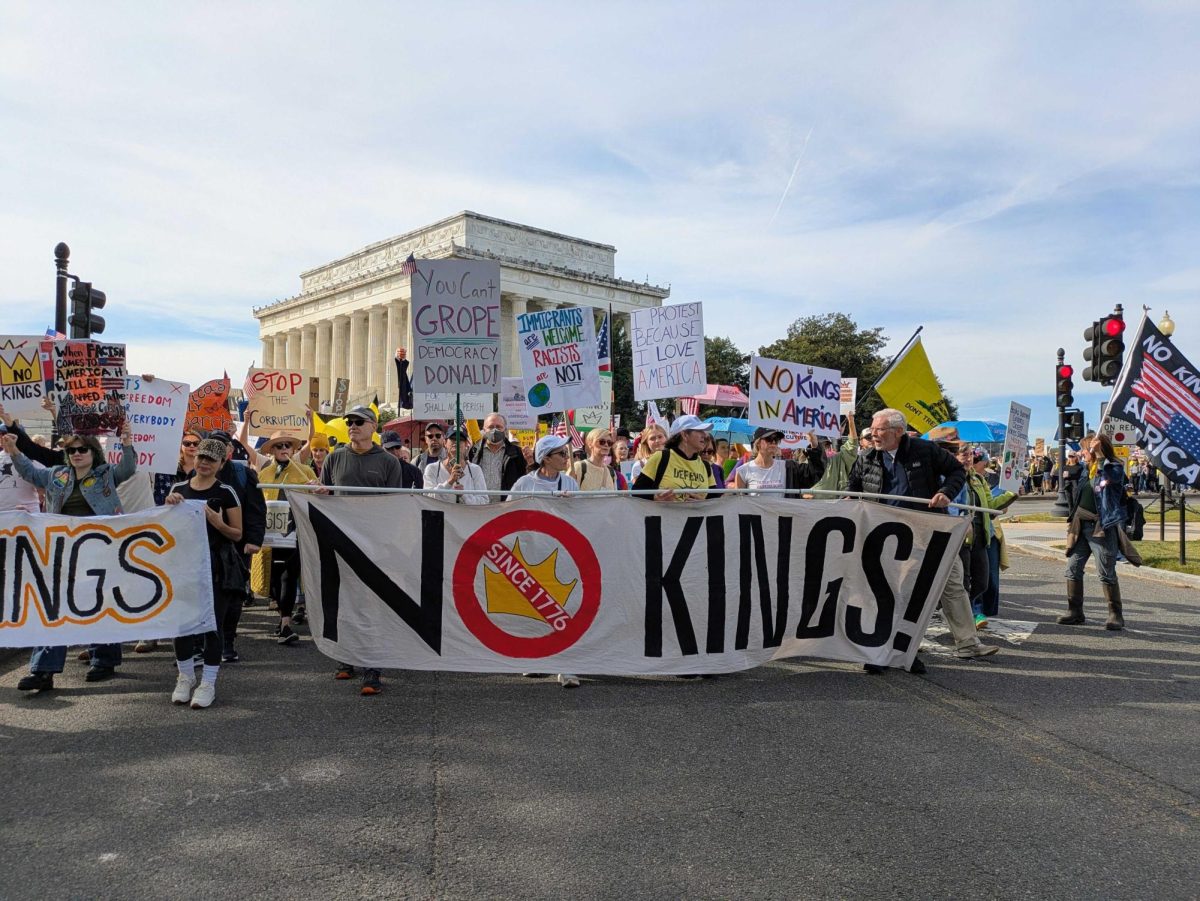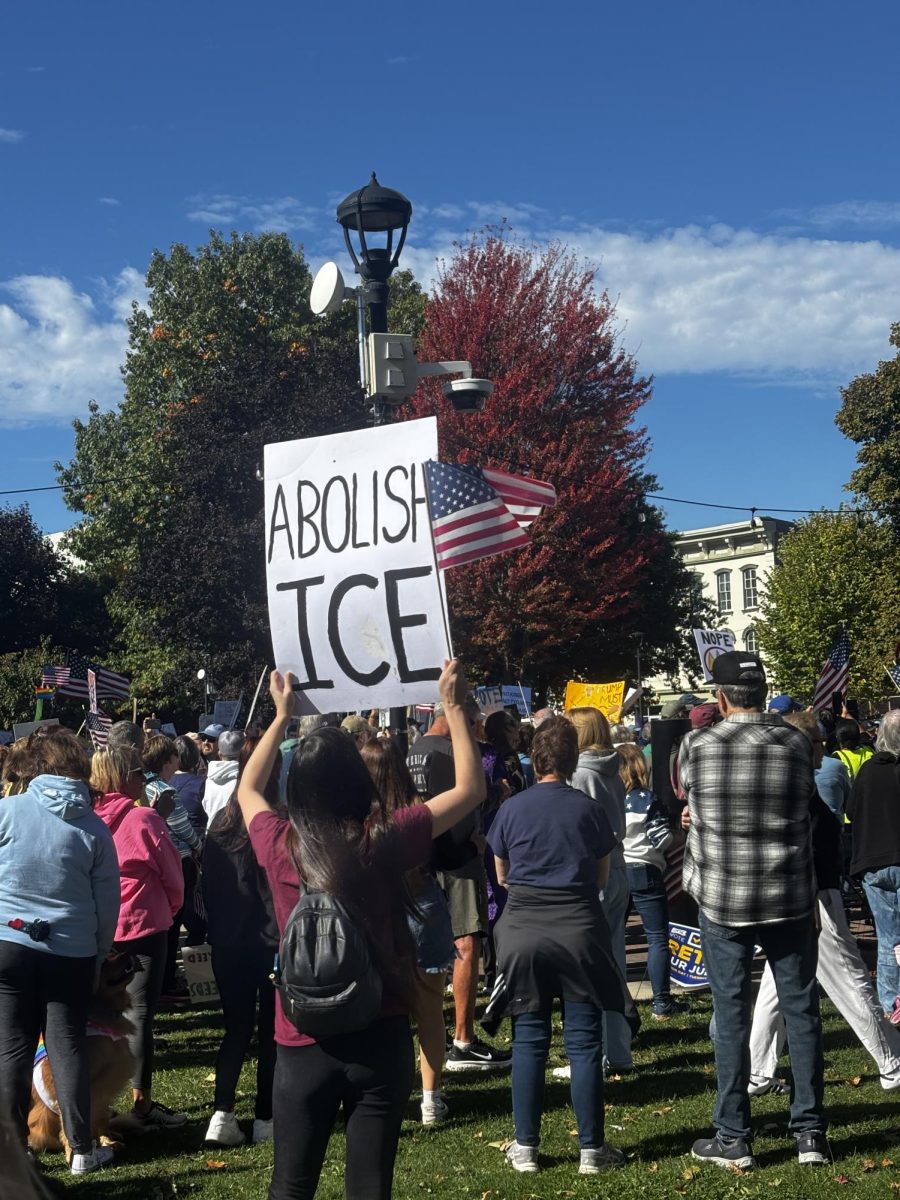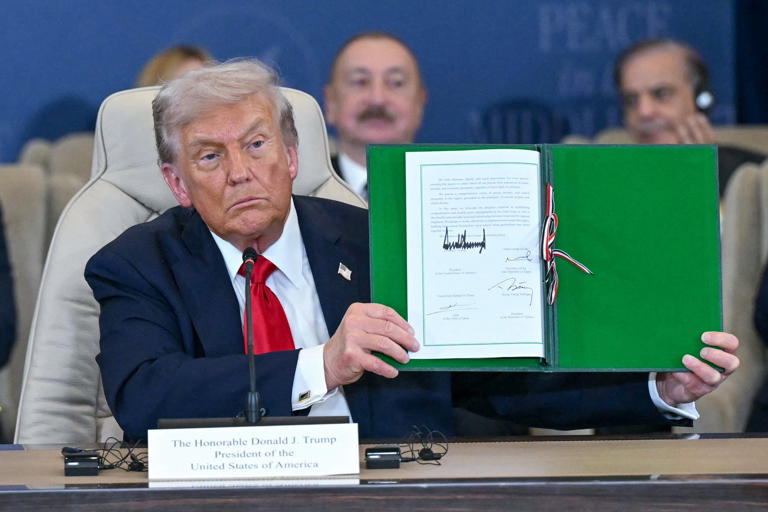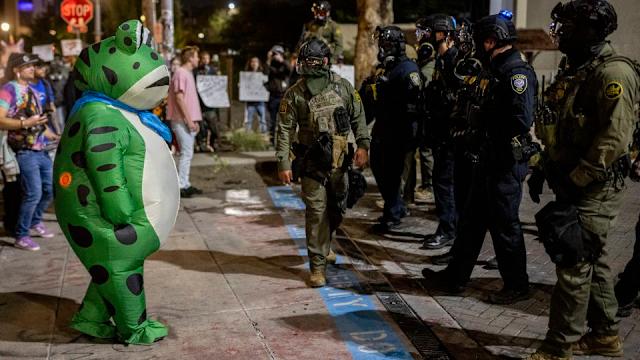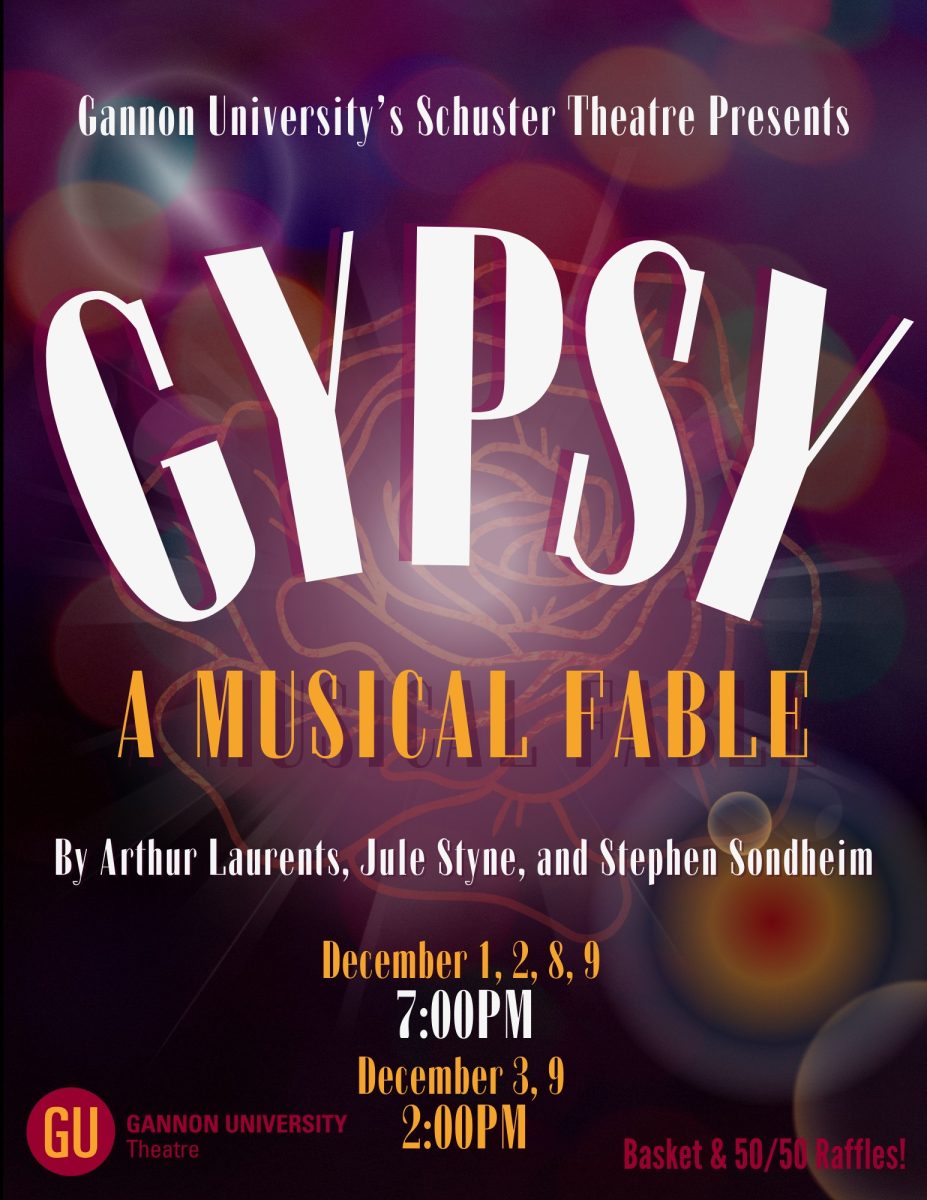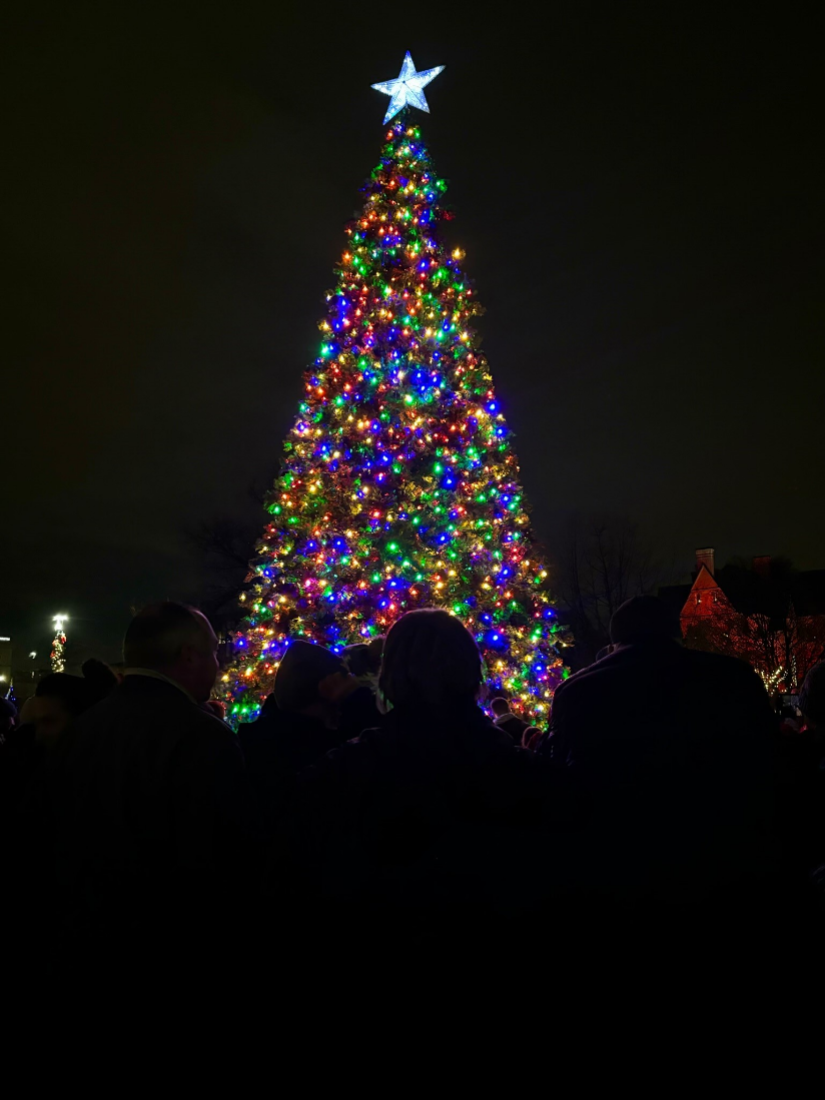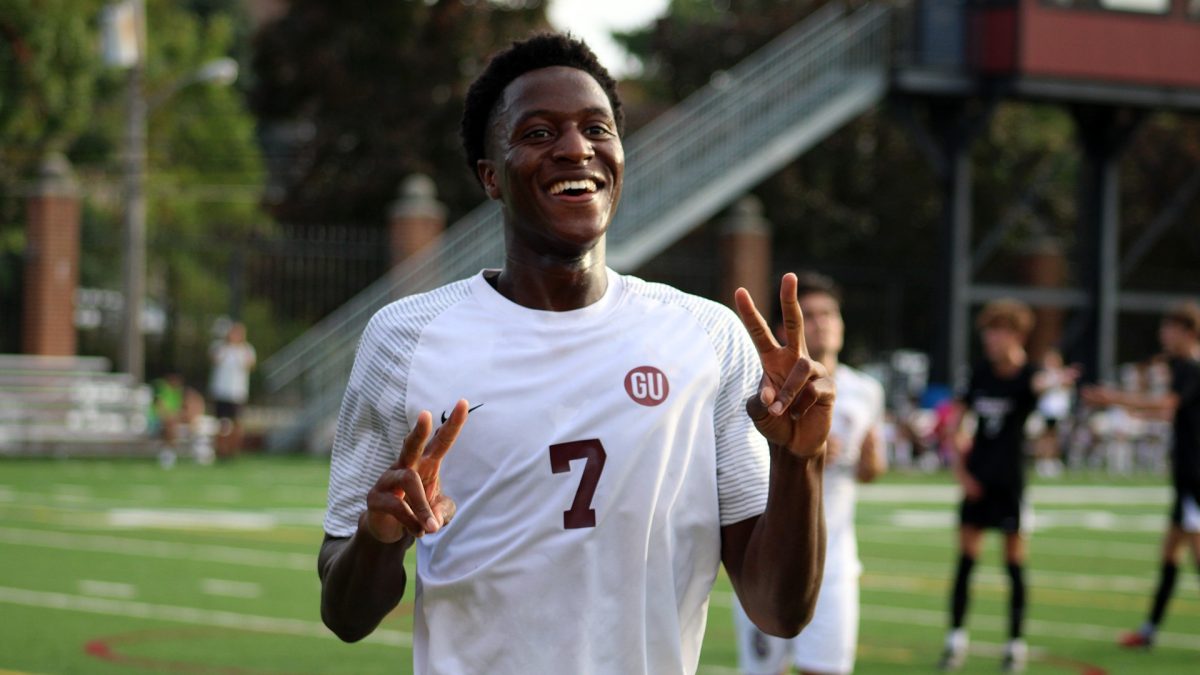Students studying how to doctor animals are not the only vets on Gannon University’s campus. Named a military friendly school for its ROTC program, Gannon also works with veteran GI bills to bring service members an education.
Nathan Venesky, a senior history major and Marine Corps veteran, said Gannon makes a good effort to be ‘military friendly,’ but almost overdoes it.
“ROTC gets a good rep here, but I think they try a little bit too hard,” Venesky said. “I’m just here to come to school and get out.”
Venesky’s observation might stem from the covert nature of veterans. Having the distance of time or place, retired service members don’t always share things about their time in the military.
Students in ROTC, on the other hand, are often required to wear their uniforms for most of the day and may have more open attitudes about their reserve training exercises.
Which is not to say veteran students are unwilling to share their experiences. Venesky presented an SGA Student Spotlight talk on his service for the Marines as a security officer to former president Barack Obama from 2009-2013.
Other veteran students agreed Gannon was more about receiving a formal education than anything else and noticed a disconnect with the traditional student population.
Bob Helsley, a senior history major and Army veteran, said Gannon students are nice, but interacting with them can wear him down.
“Students suck,” Venesky added, jokingly. He said there’s a noticeable maturity gap.
Brad Russo, a sophomore legal studies major and Army veteran, disagreed.
“I haven’t had any bad experiences,” Russo said. “Most of the people I met here were pretty cool, even though I’m old enough to be their uncle.”
Dale Snyder, a junior freshwater marine biology major and Army veteran, sided with Russo.
“The class of students at Gannon are better than at Edinboro,” he explained. “It’s like a family here.”
One thing the group agreed on was a need for their own space on campus, found at the end of the English department offices. Informally renamed the Veteran Adult Student Lounge, Venesky said he was involved in renaming it to give the space a more exclusive nature.
“We were getting a few of the children from downstairs in our room,” Venesky said. “It was a big deal for us to have our room where we can vent and it gives us our own veteran support group that we can easily connect to.”
While the Veteran Adult Student Lounge is connected to Commuter Life on campus, the students cited a lack of resources as another source of disconnect.
Hesley said he had trouble getting used to all the technology systems on campus, since there was a 10-year gap between his high school education and starting college.
Andrew Gannoe, a junior criminal justice major and Marine Corps veteran, said it’s different for students not living on campus.
“I kind of regret missing out on that a little bit,” Gannoe said.
“Unlike the students in the dorms, we can’t use technology resources on campus,” Venesky said.
While the lounge is furnished with worn-in sofas, a refrigerator and Old Glory on the back wall, the single computer is out of service and not enough to accommodate its regular visitors. Snyder, however, expressed different concerns.
“We need a real pencil sharpener in [the lounge],” Snyder said.
Regardless of background, veteran students are still part of the Gannon family, and share in social experiences, too.
“It’s a good liberating feeling when I meet someone who is mature,” Venesky said. Although he said he had no emotional connection to Gannon, he’s heavily involved on campus as a Writing and Research Center Consultant and presented at the CHESS Conference.
Just be warned a visit to the Veteran Student Lounge takes thick skin. Banter is the language of the lounge, especially in Snyder’s case.
“Dale’s pretty much a vampire, he’s fought in every war ever,” Gannoe explained of Snyder.
“You watch your movies, I lived the Cold War,” Snyder said.
KELSEY GHERING
[email protected]


